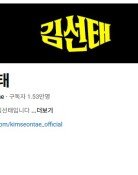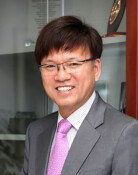Shocking Change of Campaigning in 16th Presidential Election
Shocking Change of Campaigning in 16th Presidential Election
Posted December. 20, 2002 22:35,
This year`s presidential election has brought about the advent of a president in 50s and the termination of Three Kims` era. On its way to the results, this presidential election has witnessed various new social changes, helping us feel social and cultural transformations. Some citizens, for example, define this election as a confrontation of old and new generations. Others mark it as a transition from political party-centered politics to citizen-led one. Still others note the launching of media campaigning in earnest.
▽ Change of generation by culture = During the campaigning, the word that dominated people`s conversations was the inter-generation confrontation. Sociology Professor Kim Ho-ghi of Yensei University defined, "This election was a reform led by young people in 20s and 30s. In other words, it was a coordinated work by the 386 generation and the new generation." Kim analyzed, "With the information age getting rooted in society and the globalization getting widened, a new generation has emerged, a generation that defies the authoritarianism and group-oriented ideas. They prefer liberalism and individualism. They have begun to dominate the mainstream in society, and Mr. Roh successfully read the trend and used it to his advantage."
The potential and demand of this new generation has been demonstrated through the street cheering during the World Cup and the candle-lit rallies commemorating the two school girls murdered by US solders. And through these events, they have differentiated themselves. Parents have just ignored the new social movement. The difference between generations has, however, proven extremely distinctive during this election to the extent that it generates a major social issue in the Korean society.
▽ Widened use of online campaigning = Another factor that played a major role in bringing about the change through this election was the online campaigning. Professor Shin Ho-chang of Advertising at Sogang University said, "The Internet has made two-way communication possible. On here, the netizens [or citizens of the Internet] actively engaged themselves and exchanged various opinions with each other. This movement over the Internet had finally led to offline participation." As a result, direct democracy by citizens has begun to get rooted in.
Professor Oh Tack-sup of journalism at Korea University opined, "The cyberspace is a huge political party, a media of devastating power and a venue for demonstrations. It, however, could be misused as a venue of swearing and damaging impacts. Under these circumstances, it becomes more important for the regular media and press to lead the society with proper standards based on accuracy and trustworthiness."
▽ Beneficial and harmful aspects of media campaigning = It is hard to deny that campaigning over the media such as TV, radio and Internet has dramatically cut down on the campaign costs. According to the financial records submitted to a campaign-watch group by political parties, parties spent more than half of their campaign budgets on TV commercials and maintenance of web sites.
On the other hand, only a fraction of the money, or 1/10 of the total budget was spent for hosting street rallies. In the process, avoided was the repetition of past campaigning strategies marked with corruption and bribery. Consequently, clean and transparent campaigning took the lead.
Professor Park Chang-hee at Songshil University remarked, "Each camp had put priority on making up good images of its candidate. TV features imagery first. That is why. In short, candidates were eager to win the voters through "well decorated" images, rather than provision of sincere policies.
▽ Party politics to citizen politics = Citizens` voluntarily participation overwhelmed the organizations of political parties. It was a remarkable change.
Professor Cho Dae-yup of sociology at Korea Univ. explained, "Fundamental social changes have caused politicians to undergo changes, too. Citizens have become familiar with the concepts of globalization, information and democratic movement in 1980s. They have overcome the problems and limitations that have been posed by the political party system."
Various civil rights organizations first spearhead the movement. They categorized policies into classes, and examined them. In the past, for example, they waged campaigns against some politicians. Through the expertise and experience, they have built up their influences, and finally succeeded in sparking the political transition from party-centered politics to citizen-centered one. But what is left is to minimize the turmoil caused by the transition.
Hyoung-Chan Kim Sung-Kyu Kim khc@donga.com kimsk@donga.com







